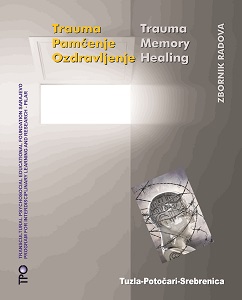Kultura zaborava ili sjećanja: konverzija identiteta Banje Luke
Culture of Oblivion or Remebrance: Conversion of Identity of Banja Luka City
Author(s): Srđan Šušnica
Subject(s): Nationalism Studies, Rural and urban sociology, Sociology of Culture, Identity of Collectives
Published by: Transkulturna Psihosocijalna Obrazovna Fondacija (TPO Foundation)
Keywords: memory narratives; cultural memory; street names; Banja Luka;
Summary/Abstract: For author Jens Brockmeier, a culture memory is forming by capturing of oral narrative within memory texts and practices which are not independent, but significantly intertwined with socio‐political narration or they are susceptible to such narratives. In such manner the memory narratives are created, which main texts carry main social, political and material settings of community of people who are remembering or forgetting, as well as people who are predicting, expecting or endure the outcomes of precarious cultural or political future. A picturesque example of agency of such memory narratives toward creation of culture memory is everyday consummation of new, wartimes, pro‐Serbian names of streets and settlements in Banja Luka. These new memory notes had been put in place between 1992 and 1996 when authorities have erased from memory the names of 15 settlements and around 250 or half of pre‐wartimes streets. Goal of this review paper is to present intensity and basic contextual directions of these violent changes, through discursive analysis of street names. To point out, how much indeed a culture memory in today’s' Banja Luka is built up on violent oblivion of non‐Serbian ethnic or religious, as well as of leftist and multhy‐ethnical memory narratives. As well as, on fulfilling the "memory gaps" with romantic and mythological historic and political constructs. By reading the new street names such as King Lazar Str. or Ravnogorska Str., people of today are placed in mnemonic relations toward prevailing and imposed cultural and political (re)interpretation of Banja Luka's past. It factitiously connects the value and cognitive horizons of past and presence, writes cultural memory of the city backward, and gives to the citizens a sense of belonging to the ceaseless and simulacrum chain of politically lucrative and ethnically desirable explications of historic events and conflicts. Such time‐space inversion in interpretation of historic events toward past is bizarre condition for the establishment of cultural and ideological justifications of Banja Luka's presence and for the setting of people's expectations into the future. Whereas a discursive meanings and memory narratives of street names such as Vahide Maglajlić Str. or Ferhatpaše Str. don't pass the filter of selected memory frame of "Serbian Banja Luka", so they are expelled from the chain of desirable explications, and therefore are not allowed to be placed in the mnemonic relation with average citizen of Banja Luka. This review paper with its empirics and approach wants to illuminate facts and to contribute to the answers on questions such: whether today's RS can even survive with such quantity and intensity of artificial memory narratives on which it's created and whether a new cultural remembrance which aim to reach a level of independent cultural memory of "Serbian Banja Luka" can be built up on massive and violent oblivion and distortion of narratives?
Book: Trauma, pamćenje, ozdravljenje
- Page Range: 37-58
- Page Count: 22
- Publication Year: 2014
- Language: Bosnian
- Content File-PDF

